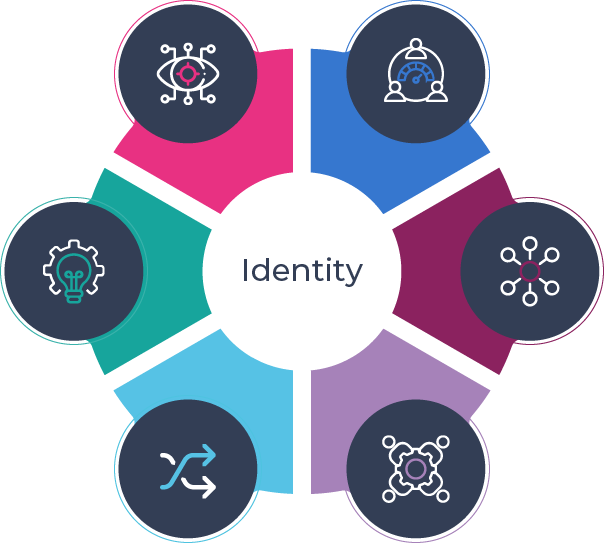Traditional leadership styles have evolved. Leaders need to develop a multifaceted set of skills to meet the demands of a modern workforce – leading with empathy, being inclusive, driving innovation and demonstrating thought leadership.
These pressures require modern solutions. Alchemist’s Leadership Enablement programmes aim to identify and help to close skills gaps with exciting, engaging and experiential sessions which embed learning.
Identity
Deep self awareness driven by a leader’s sense of purpose and where they are in their developmental journey.
Performance Guru
Unlocks the potential by enabling productivity and empowering the success of your team.
Connector
Builds a broad and diverse network across the organisation by fostering trust and collaboration.
Includer
Prioritises a positive work experience for themselves and others, promoting well being and inclusion within their team.
Transformer
Instigates positive change and leads the organisation through uncertainty to find a stronger and more promising future.
Innovator
Creates an environment that connects disparate ideas to create business value and drive efficiency.
Futurist
Understands the forces at work in their industry and uses data to make informed decisions about the future.
Understands the forces at work in their industry and uses data to make informed decisions about the future.
Creates an environment that connects disparate ideas to create business value and drive efficiency.
Instigates positive change and leads the organisation through uncertainty to find a stronger and more promising future.
Unlocks the potential by enabling productivity and empowering the success of your team.
Builds a broad and diverse network across the organisation by fostering trust and collaboration.
Prioritises a positive work experience for themselves and others, promoting well being and inclusion within their team.
Alchemist's Approach To Leadership
With 30+ years of experience, combined with extensive research and occupational psychology, we built the Alchemy of Leadership model.
Specially-designed diagnostic tools will be applied to your business to help to uncover the specific areas that need targeting. With these insights, Alchemist can provide highly personalised programmes that build relevant skills to overcome these gaps with interactive, experiential and immersive sessions. Together we can help your leaders find their own authentic leadership style, backed by robust knowledge and skills development.
Leadership Development
Enable your talent to become more effective at leading the business – with learning that encourages their confidence in leading change, inspiring others and taking charge commercially.

Management Development
The days of authoritarian leadership are behind us. We take a holistic approach to leadership enablement that will develop both the soft and hard skills which make your leaders excel in their roles.

Culture transformation
Refocus your team to achieve a culture transformation that benefits your business. With a tailored approach to address the specific needs of your organisation, such as culture, DE&I or digital transformation; together we can enable your leaders to become change champions.
Culture Change
Culture change represents a profound transformation in the attitudes, values, and behaviours within an organisation, aiming to align its internal environment with strategic goals and external challenges. It necessitates an intentional, inclusive approach, engaging all levels of the organisation to foster adaptability, innovation, and a shared sense of purpose.
Transformation
Transformation is a comprehensive and dynamic process for any organisation. It encompasses strategic overhaul and operational changes to meet evolving market demands and internal growth objectives. It involves not only redefining the business model and practices, but also cultivating a culture that embraces continuous learning, adaptability, and innovation - to drive long-term success and resilience.
Diversity & Inclusion
Diversity and Inclusion (D&I) are foundational elements of a progressive organisational culture, emphasising the recognition, appreciation, and integration of differences across a spectrum of human attributes. Creating an environment where every individual feels valued and included means organisations can unlock innovation, drive performance, and enhance employee engagement and loyalty.
Embedding Culture Change
Embedding culture change requires consistent effort. Strategies that ensure new values and behaviours are deeply integrated into every level of an organisation, becoming a part of the daily actions and decisions of its members. This process involves clear communication, leadership endorsement, and reinforcement - through policies, rewards, and recognition. This makes the desired culture both a living practice and a cornerstone of organisational identity.

Early Careers
Early careers development is a critical part of your talent funnel. Prepare your young talent for future success with learning that develops their self-awareness and nurtures key skills like problem solving and how to have high impact conversations.
Latest Leadership Enablement Publications
Contact Us
Speak to Alchemist to find out how we can transform your organisation from the ordinary to the extraordinary with a custom-made learning journey.
